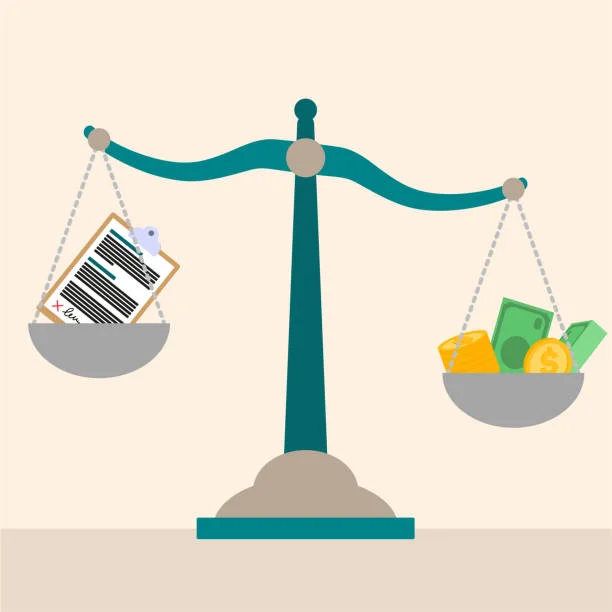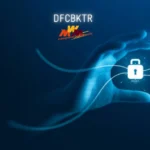Imagine this: you’re in a car crash. The ambulance rushes you to the ER. You get treated—x-rays, scans, maybe even surgery. Weeks later, you feel lucky to be healing…until the bills show up. Despite having insurance, you’re being charged thousands by out-of-network providers you never chose. Is this legal?
Thanks to the federal No Surprises Act (NSA), in most emergency situations, it’s not. This law shields patients from unexpected medical bills tied to out-of-network emergency care. But not everything is covered—and many patients still face billing gray areas, especially after car accidents. Here’s what the NSA protects, what it doesn’t, and what to do if a surprise bill shows up anyway. Spanish-speaking workers’ comp lawyers in Birmingham are here to help.
Quick Take: What the No Surprises Act Covers After a Crash
After an accident, emergency medical care can be chaotic and fast-moving—and the last thing patients think about is whether a provider is in-network. That’s where the No Surprises Act steps in.
Emergency room care (regardless of hospital network status):
If you’re taken to the emergency room—whether or not the facility is in your health plan’s network—you cannot be balance billed for emergency services. Your cost-sharing (e.g., copays and deductibles) must be calculated as if the care were in-network. This applies broadly to emergency stabilization services and includes treatment by out-of-network physicians working at the ER.
Out-of-network specialists at in-network hospitals:
Even if you go to an in-network hospital, you might be seen by clinicians (like anesthesiologists or radiologists) who aren’t in your plan. Under the NSA, those providers can’t send you extra “balance bills” beyond in-network cost-sharing.
Post-stabilization services and written consent rules:
Once you’re stable, different billing rules can apply. Out-of-network providers can request your written consent to waive No Surprises Act protections, but only in specific non-emergency situations and only if they follow strict notice protocols. If you decline, they must arrange in-network care if available.
Air ambulance services:
If you’re transported by an air ambulance not in your health plan’s network, the No Surprises Act still applies. You can’t be balance billed, and your cost-sharing is limited to in-network levels. This provision helps protect crash victims in rural areas where air ambulances are often the only option.
What the Law Doesn’t Cover (and Common Surprise Charges)
Despite its broad reach, the No Surprises Act doesn’t cover every type of bill—and some of the most frequent medical charges after a crash still fall into regulatory gaps.
Ground ambulance surprise bills:
Unlike air ambulances, ground ambulances are not covered by the federal surprise billing law. That means if you’re transported by a local ambulance service that’s out-of-network, you may still be billed the balance not paid by your insurance. In 2024, a federal advisory committee recommended extending protections, but for now, it depends on state law. Some states offer ground ambulance billing protections, but coverage varies widely.
Choosing out-of-network care voluntarily:
If you knowingly select an out-of-network provider or facility and give written consent under the law’s notice/consent process, No Surprises Act protections may not apply. Patients who want specific out-of-network doctors should check their plan’s terms carefully before waiving rights.
Services your plan doesn’t cover:
The No Surprises Act doesn’t create coverage where there isn’t any. If your insurance plan simply doesn’t cover a service (say, elective imaging or certain specialists), then the provider can still bill you directly. You’ll be responsible for those charges outside the NSA’s reach.
Certain insurance types:
Medicare, Medicaid, CHIP, TRICARE, the VA system, and Indian Health Services aren’t governed by the NSA—but that’s because they already include their own balance billing protections. If you’re unsure which system covers you, check directly with your program or insurer.
Behind the Scenes: How Payment Disputes Get Resolved (You’re Not in the Middle)
One of the most patient-friendly aspects of the No Surprises Act is what happens behind closed doors when providers and insurers disagree on payment amounts.
When a provider and health plan can’t agree on what should be paid for out-of-network emergency care, they don’t drag the patient into the dispute. Instead, they use a federal Independent Dispute Resolution (IDR) process. Both sides submit an amount, and a third-party arbitrator chooses one based on criteria like median in-network rates.
Patients aren’t involved—and shouldn’t be balance billed while this process is ongoing. This separation protects consumers from being caught in the financial crossfire. You can learn more about the IDR process on the federal “No Surprises” portal.
After a Crash: Health Insurance vs. Auto Insurance
Billing after an accident isn’t always straightforward. Who pays first—your health insurer or auto insurer—can depend on the state you live in and the type of policies you hold.
In “no-fault” states, auto insurance may cover some or all of your initial medical bills through MedPay or Personal Injury Protection (PIP). In other states, health insurance may step in first. Either way, No Surprises Act protections apply to how medical providers bill you, regardless of whether health or auto insurance pays.
If you’ve been in a crash, check your health and auto insurance policies and talk to your claims adjuster. Understanding how your coverage coordinates can help prevent misbilled charges from slipping through the cracks.
If You Still Get a Surprise Bill: A 5-Step Playbook
Even with federal protections in place, billing errors or violations can happen. If you get an unexpected medical bill after a crash, here’s how to handle it:
- Request an itemized bill:
Review the services you’re being charged for. Ask the provider: “Are you billing me more than in-network cost-sharing for emergency services or services at an in-network facility?” - Contact your health plan:
Share the date of your ER visit and any billing codes (often called CPT codes). Reference the No Surprises Act and ask whether the services are protected under the law. - File a federal complaint if needed:
If your plan or provider is ignoring the NSA, file a complaint through the federal consumer help portal: No Surprises Help. Regulators can investigate violations and force corrections. - If you’re uninsured or paying cash:
You’re entitled to a Good Faith Estimate before care. If your final bill is at least $400 higher, you can use the Patient-Provider Dispute Resolution process to contest the charges. More on this is available in the federal eCFR database. - Document everything:
Save copies of bills, explanation of benefits (EOBs), letters, and phone call notes. Dispute bills in writing and meet all stated deadlines.
Special Case: Transfers & Post-Stabilization Choices
If you’re stable enough to be moved to another hospital, No Surprises Act protections continue—as long as you’re transferred to an in-network facility when available.
Providers may ask you to waive your NSA protections after you’re stabilized, but you don’t have to agree. Only sign consent forms if you fully understand the billing implications and truly want out-of-network care. Otherwise, you have the right to decline and request in-network options.
Air vs. Ground Ambulance: Know the Difference
This is one of the biggest areas of confusion after crashes:
- Air ambulance services are covered under the No Surprises Act if they’re out-of-network—meaning you can’t be balance billed.
- Ground ambulance services are not covered by the NSA, though some states have laws limiting surprise billing from local EMS providers.
To find out if your state has protections for ground ambulance rides, check your state’s department of insurance website or contact your insurer.
When to Talk to a Lawyer After a Crash
If you’re recovering from a serious car accident, navigating insurance billing should not be your burden. Legal support may be especially important if:
- You suffered severe or disabling injuries
- There are disputes about who’s at fault
- An insurer is denying coverage or delaying payment
- You’ve received illegal or unclear medical bills despite No Surprises Act protections
For Alabama crash victims—especially Spanish-speaking families—working with Spanish-speaking car accident lawyers in Birmingham can make a real difference. A skilled personal injury lawyer can help resolve billing disputes, pursue compensation, and ensure all legal protections are enforced.
Navigating the aftermath of a crash is hard enough. Thanks to the No Surprises Act, many patients now have strong federal protections against unexpected medical bills. Still, gaps remain—and knowing your rights is key. If you’re facing stubborn bills or insurance complications, Abogados Centro Legal can help protect your recovery—not just medically, but financially too.






